Oceans
-
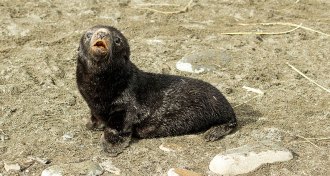 Animals
AnimalsPup kidnapping has a happy ending when a seal gets two moms
A female fur seal kidnapped another seal’s pup. But this turned out to be a positive the young seal, scientists found.
-
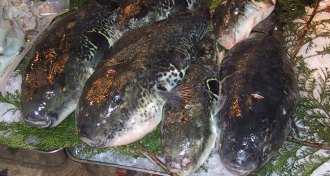 Oceans
Oceans50 years ago, humans could pick the oceans clean
Scientists have long recognized that we might overfish the oceans. Despite quotas, some species are paying the price of human appetite.
-
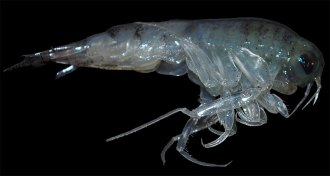 Oceans
OceansSea ice algae drive the Arctic food web
Even organisms that don’t depend on sea ice depend on sea ice algae, a new study finds. But Arctic sea ice is disappearing.
-
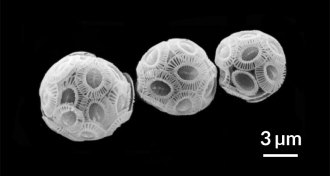 Climate
ClimatePhytoplankton’s response to climate change has its ups and downs
In a four-year experiment, the shell-building activities of a phytoplankton species underwent surprising ups and downs.
-
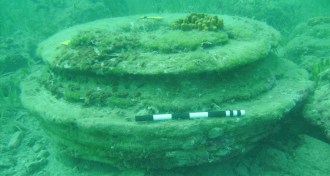 Oceans
OceansUnderwater city was built by microbes, not people
Submerged stoneworklike formations near the Greek island of Zakynthos were built by methane-munching microbes, not ancient Greeks.
-
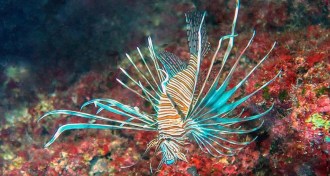 Animals
AnimalsLionfish invasion comes to the Mediterranean
Scientists had thought that the Mediterranean was too cold for lionfish to permanently settle there. But now they’ve found a population of the fish off Cyprus.
-
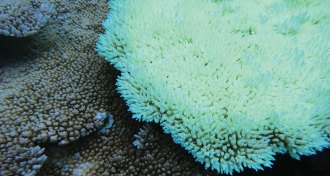 Oceans
OceansCoral bleaching event is longest on record
Widespread coral bleaching continues, in the longest episode, over the largest area to date.
-
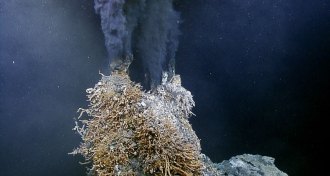 Oceans
OceansDeep-sea hydrothermal vents more abundant than thought
Ecosystem-supporting hydrothermal vents are much more abundant along the ocean floor than previously thought.
-
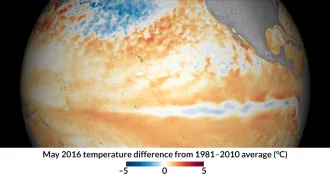 Climate
ClimateThe ‘super’ El Niño is over, but La Niña looms
The 2015–2016 El Niño has officially ended while its meteorological sister, La Niña, brews.
-
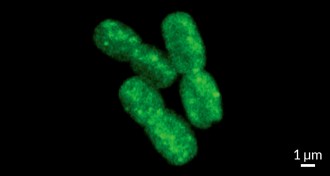 Ecosystems
EcosystemsOcean plankton held hostage by pirate viruses
The most abundant photosynthesizers on Earth stop storing carbon when they catch a virus.
By Susan Milius -
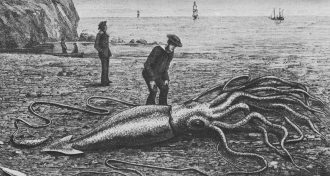 Animals
AnimalsMaximum size of giant squid remains a mystery
A scientist has come up with a new estimate of the maximum size of giant squid. He says the animals could be as long as two public buses.
-
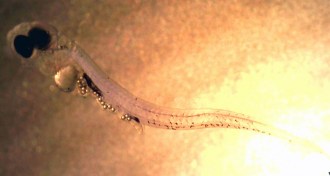 Animals
AnimalsTiny plastics cause big problems for perch, lab study finds
Researchers have linked microplastics to feeding behavior changes and development issues in Baltic Sea perch.